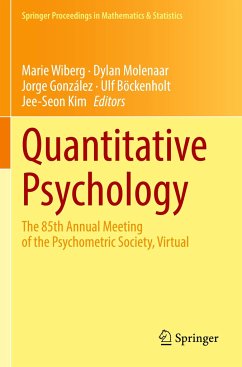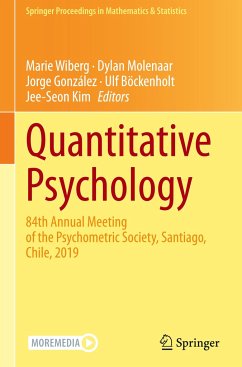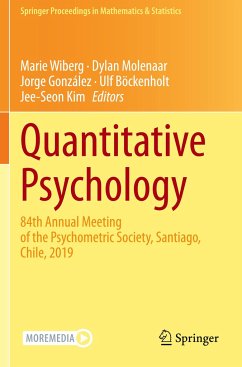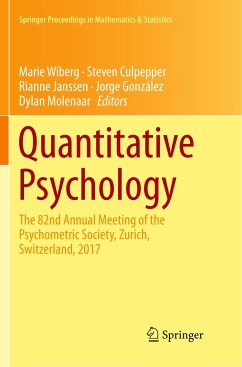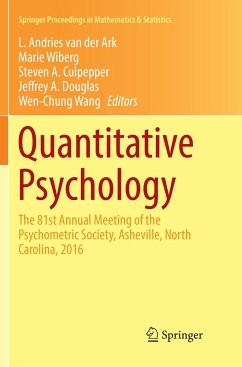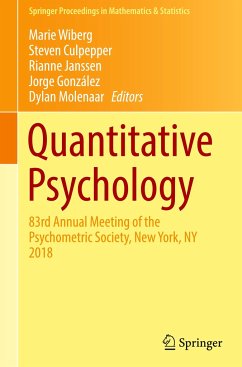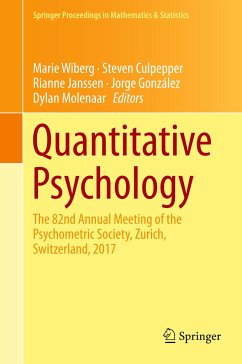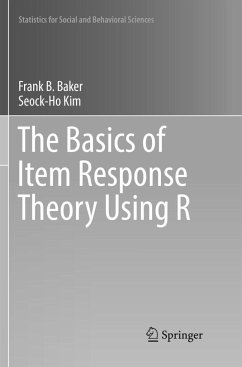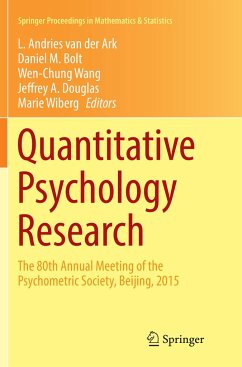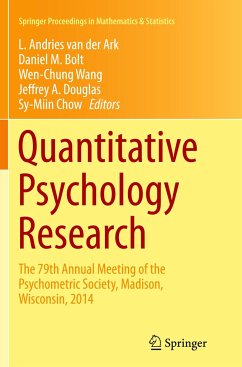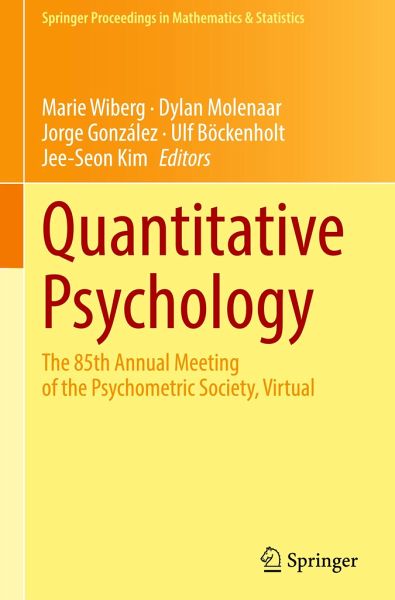
Quantitative Psychology
The 85th Annual Meeting of the Psychometric Society, Virtual
Herausgegeben: Wiberg, Marie; Molenaar, Dylan; González, Jorge; Böckenholt, Ulf; Kim, Jee-Seon

PAYBACK Punkte
76 °P sammeln!
This proceedings volume highlights the latest research and developments in psychometrics and statistics. It represents selected and peer-reviewed presentations given at the 85th Annual International Meeting of the Psychometric Society (IMPS), held virtually on July 13-17, 2020.The IMPS is one of the largest international meetings on quantitative measurement in education, psychology and the social sciences. It draws approximately 500 participants from around the world, featuring paper and poster presentations, symposiums, workshops, keynotes, and invited presentations.Leading experts and promis...
This proceedings volume highlights the latest research and developments in psychometrics and statistics. It represents selected and peer-reviewed presentations given at the 85th Annual International Meeting of the Psychometric Society (IMPS), held virtually on July 13-17, 2020.
The IMPS is one of the largest international meetings on quantitative measurement in education, psychology and the social sciences. It draws approximately 500 participants from around the world, featuring paper and poster presentations, symposiums, workshops, keynotes, and invited presentations.
Leading experts and promising young researchers have written the included chapters. The chapters address a wide variety of topics including but not limited to item response theory, adaptive testing, Bayesian estimation, propensity scores, and cognitive diagnostic models. This volume is the 9th in a series of recent works to cover research presented at the IMPS.
The IMPS is one of the largest international meetings on quantitative measurement in education, psychology and the social sciences. It draws approximately 500 participants from around the world, featuring paper and poster presentations, symposiums, workshops, keynotes, and invited presentations.
Leading experts and promising young researchers have written the included chapters. The chapters address a wide variety of topics including but not limited to item response theory, adaptive testing, Bayesian estimation, propensity scores, and cognitive diagnostic models. This volume is the 9th in a series of recent works to cover research presented at the IMPS.



